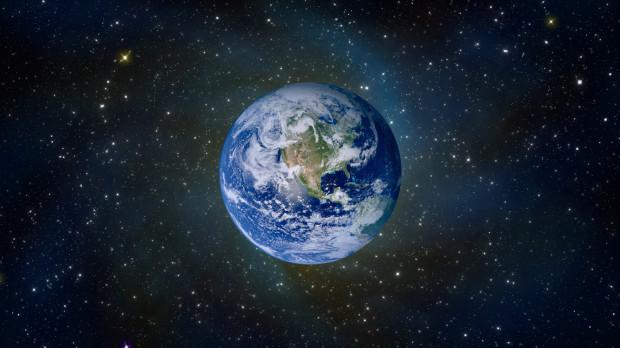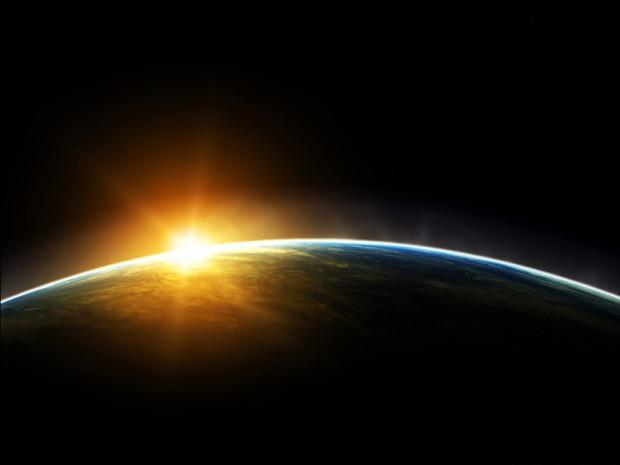575
Mankind to live on Earth more 1, 75 billion years
If we do not destroy the planet ranshe
According to a study published on September 18 in the journal «Astrobiology», Earth still around 1, 75 billion years could serve as a haven for life.
Such conclusions were made by the authors on the basis of the study of the displacement of so-called habitable zone of sun. The habitable zone stars - this is an area in which to be a planet that could have formed her life, a basic condition for this is the presence of liquid water as a catalyst for chemical reactions.
The chemical reactions taking place inside the star, as a rule, lead to an increase in luminosity and a shift in the direction of the habitable zone of the star. In March this year, researchers reported that the Earth is closer to the inner edge of the habitable zone of the Sun than previously thought.

The inner edge of the habitable zone of sun moves away from it at a speed of about one meter per year, and according to calculations, the Earth should be in a residential area of 6, 3 billion to $ 7, 8 billion years, so that about 70% of the time has already passed.

However, some researchers have criticized these forecasts. For example, an astrobiologist Caleb Scharf of Columbia University believes that the world is too much time spent on the maintenance of the highest forms of life, so the planet's resources may be less. Other scientists, in particular, Colin Goldblatt, a member of University of Victoria in Canada, believes that the formula used for the calculation, too primitive.

Goldblatt, who studies climate different planets, argues that a model in which the atmosphere, tectonic activity and the composition of extrasolar planets similar to Earth, does not have sufficient grounds. Excluding the dynamics of climate, atmospheric composition and its density forecasts duration "residential" period is incorrect, says climatologist.
Mark Clare, an astronomer at the University of St Andrews (Scotland), in turn, argues:

According to a study published on September 18 in the journal «Astrobiology», Earth still around 1, 75 billion years could serve as a haven for life.
Such conclusions were made by the authors on the basis of the study of the displacement of so-called habitable zone of sun. The habitable zone stars - this is an area in which to be a planet that could have formed her life, a basic condition for this is the presence of liquid water as a catalyst for chemical reactions.
The chemical reactions taking place inside the star, as a rule, lead to an increase in luminosity and a shift in the direction of the habitable zone of the star. In March this year, researchers reported that the Earth is closer to the inner edge of the habitable zone of the Sun than previously thought.

The inner edge of the habitable zone of sun moves away from it at a speed of about one meter per year, and according to calculations, the Earth should be in a residential area of 6, 3 billion to $ 7, 8 billion years, so that about 70% of the time has already passed.

However, some researchers have criticized these forecasts. For example, an astrobiologist Caleb Scharf of Columbia University believes that the world is too much time spent on the maintenance of the highest forms of life, so the planet's resources may be less. Other scientists, in particular, Colin Goldblatt, a member of University of Victoria in Canada, believes that the formula used for the calculation, too primitive.

Goldblatt, who studies climate different planets, argues that a model in which the atmosphere, tectonic activity and the composition of extrasolar planets similar to Earth, does not have sufficient grounds. Excluding the dynamics of climate, atmospheric composition and its density forecasts duration "residential" period is incorrect, says climatologist.
Mark Clare, an astronomer at the University of St Andrews (Scotland), in turn, argues:
«There are many planets that might be in the habitable zone, and serve as a haven of life».
blockquote> According to him, when the Earth will be too hot in the habitable zone would be just Mars.
«If a billion years, people will still be there, it is possible that they will have to live on Mars" - suggests an astronomer.
blockquote>
via factroom.ru
























